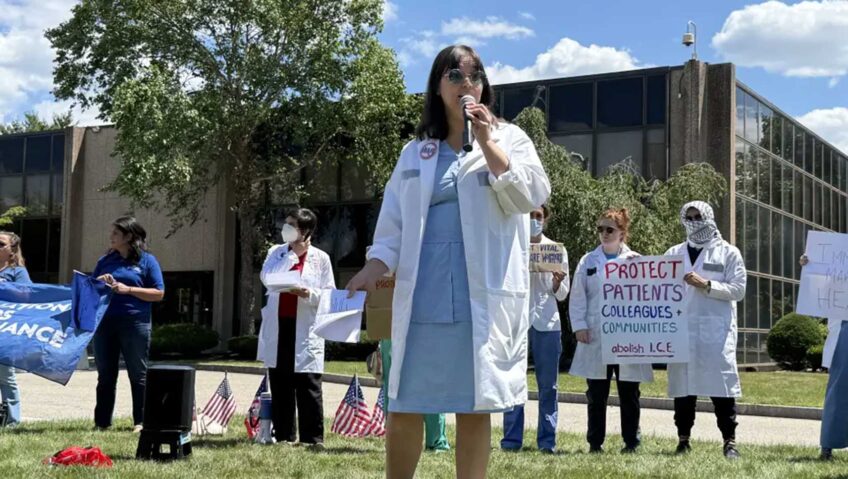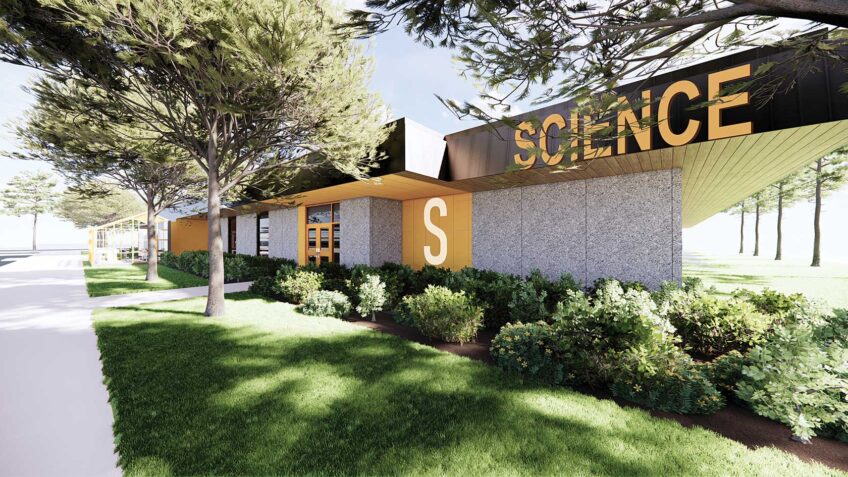
A state commission that Gov. Maura Healey established by executive order in late September is to make recommendations on expediting the creation of clean energy infrastructure in Massachusetts.
The commission includes a diverse collection of 30 representatives with expertise in varied fields from climate and land use to electric utilities, housing and environmental justice in an attempt to balance competing priorities while moving the state closer to its renewable energy goals.
Among those representatives is Mary Claire Kelly, a climate and environmental justice attorney at Alternatives for Community and Environment (ACE) in Roxbury, whose position on the commission is focused on ensuring that environmental justice communities like most of Roxbury and Dorchester experience equitable impact from new infrastructure like solar arrays, windmill farms, and storage, transmission and distribution facilities.
“Yes, we do need clean energy fast,” Kelly said, “but we don’t want clean energy fast and the benefits continue to disproportionately go towards communities who are not environmental justice communities. We don’t want a continuation of the current status quo. We want more. We want a just transition.”
Kelly said that new clean-energy infrastructure, if sited in environmental justice communities, could add more industrial construction to areas that often already host a disproportionate amount of industrial infrastructure.
She cited the long-contentious Eversource substation in East Boston, which local residents have been opposing for almost a decade.
“We understand that more of these facilities may be needed for the clean energy transition, but for a just transition, if we had had more robust environmental justice protections, Eversource would have had to listen to the community that said, ‘This will not be good for us,’” Kelly said.
Community members have expressed concerns that the Eversource substation is set to be built on land prone to flooding, as well as concerns about its proximity to a playground and nature preserve.
The impact on environmental justice communities is only one of a handful of priorities that go into siting new clean energy infrastructure.
Steve Long, director of policy and partnerships as The Nature Conservancy, is on the commission as one of three climate, environmental and land use advocates, representing concerns about how new clean energy infrastructure might impact green spaces across the state.
Over the last few years, the group Save the Pine Barrens has fought against solar arrays encroaching on pine barrens in the southeastern part of the state. On Oct. 2, Mass Audubon released a report called “Growing Solar, Protecting Nature” advocating for the protection of natural spaces as the state expands its clean energy infrastructure.
“These ecosystems create the oxygen we breathe, they create the clean water that we drink, they provide the food that we eat, so we really need to think clearly about where these facilities go,” Long said. “It’s about figuring out the best locations that have the least amount of impacts on these resources.”
For Long, that might mean placing new infrastructure on or in already constructed spaces, like buildings, parking lots or outdoor spaces that are already disturbed with contaminants. If they are going to be built in green spaces, Long said, there has to be consideration on how those spaces are identified and classified, as well as efforts to avoid and mitigate impacts on those spaces.
As these complex priorities intersect, Long said he thinks said the diverse collection of stakeholders on the commission will help streamline discussions.
“These are all the stakeholders to typically interface in this process or processes — the siting and permitting processes,” Long said. “Sharing all of their perspectives and considering them when the commission is making recommendations, I think, will lead to a better outcome.”
Over the next six months, the commission will develop a report with suggestions for how to improve the siting process. The commission is slated to be disbanded at the end of July.
John Walkey, director of waterfront and climate justice initiatives at GreenRoots in Chelsea, who is not part of the commission, said he thinks it’s good to have voices like Kelly’s and concerns about environmental justice communities represented, but legislation is necessary to ensure that the work done by the commission is put into effect.
“Commissions are great; commissions can change over time,” Walkey said. “Commissions can be ignored, so it’s the law that really provides the teeth that we need.”
In February, state legislators filed a bill that would require public health and environmental justice impacts be factored into the permitting process for clean energy infrastructure. At the same time, other proposed legislation would simply expedite the process.
Building the new infrastructure fast is not mutually exclusive with building it equitably, Kelly said.
“The point isn’t to hold up clean energy,” he said. “We want the clean energy transition, but we want a just clean energy transition. This idea of expediency versus equity — I think that’s a false framework, and it’s only a point of view because environmental justice communities haven’t been incorporated into the process. Their voices haven’t been properly heard.”






